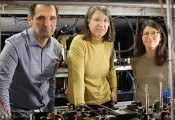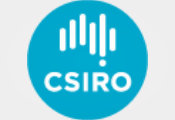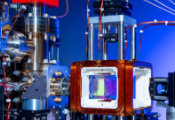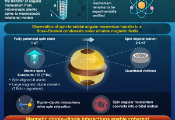UQ to Lead Quantum Evolution With $29M for 10 New Projects
October 4, 2024 -- The University of Queensland will be at the forefront of developing quantum technologies on a global stage, after securing more than $29 million through the Queensland Quantum and Advanced Technologies Strategy.
The 10 UQ projects include using quantum technologies to help with decarbonisation, computing, athlete performance, diagnosing concussion and athlete drug tests.
UQ Vice-Chancellor and President Professor Deborah Terry AC said the funding, which also includes 47 scholarships for UQ postgraduate research students, would ensure the University continued to be an international leader in developing quantum knowledge.
“These projects put us in a strong position to develop technologies to have real impacts on the world’s biggest challenges in areas like health, pharmaceuticals, resources and decarbonisation,” Professor Terry said.
“Quantum technology is forecast to attract billions of dollars to the Queensland economy, and UQ experts are looking forward to playing our role in helping the sector to realise these benefits.
“About $10 million of the funding for UQ will establish the Queensland Quantum Decarbonisation Alliance, which will bring together partner organisations to find ways to reduce carbon emissions.
Professor Warwick Bowen, Director of the ARC Centre of Excellence in Quantum Biotechnology, said the world was reaching a critical phase in the roll out of quantum technologies.
“Quantum physics explains how the world works at the subatomic level,” Professor Bowen said. “Quantum technologies use this subatomic behaviour to achieve capabilities far exceeding what is otherwise possible.
“This technology is powerful and it has the potential to add trillions into the global economy. Now is the time to invest to make the most of this opportunity.”
As the lead in the Queensland Quantum Decarbonisation Alliance project, Professor Bowen said the aim was to use quantum to help the world achieve net zero.
“We’ll be looking at quantum computing and quantum sensing to develop more sustainable energy and technologies to help reduce carbon emissions, such as designing more efficient and stronger batteries, making green hydrogen more economically viable, and looking at how the resources industry could identify critical minerals more easily,” he said.




































